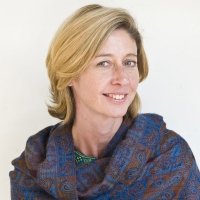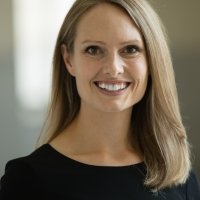The War Crime No One Wants to Talk About. A Conversation with Christina Lamb
A powerful conversation with author and award-winning foreign correspondent Christina Lamb on the prevalence of gender-based violence in modern conflict, based on her decades of reporting from the frontlines around the world. Lamb is the author of the newly-released book Our Bodies, Their Battlefield: What War Does to Women.
This event is part of a Wilson Center series held in recognition of the 16 Days of Activism against Gender-Based Violence (November 25 – December 10, 2020), an international campaign to build awareness and galvanize action in the fight against violence against women and girls.
A wake-up call... These women's stories will make you weep and rage. Amal Clooney
Speaker Quotes
Christina Lamb
“If you take Syria, today, where they’ve been at war now for nine years, there’s still millions of people carrying on with their lives, going to work, getting married, having children, and mostly it seems to me that the people who are organizing that ‘carrying on with life’ when all hell is breaking loose around them, and protecting and educating the children and the elderly, are the women. To me, that’s at least as heroic as the fighting in war, so that’s always been my main interest. But there is also a dark side of what happens to women in war and that’s the use of sexual violence.”
“Every woman I spoke to in every place pretty much told me that what they wanted was justice. But I think that that means different things to different people; not all of them [meant] that they actually wanted a trial and to see their perpetrator convicted and put behind bars. In some cases, what they really wanted was actually acknowledgement of what had happened to them and that they didn’t do anything wrong, that somebody had done bad to them. Also, they needed help because in many of these places there is no counseling. They are often ostracized in a community so they have no way of making a living and they end up destitute and living in terrible condition—all because somebody did something terrible to them. It’s extremely sad [...]. The international community needs to do more.”
“Ruth Bader Ginsburg, who as you know has died sadly recently, had once said that ‘women belong in all places where decisions are being made.’ I believe that very strongly because […] there have been successes recently in domestic courts. I have to say that the International Criminal Court in 20 years has only convicted one person for sexual violence last year and that’s it, which I think is appalling considering the widespread use of it around the world. Every case I found where there had been a successful conviction, there had been a woman on the bench—a women judge or a woman prosecutor—so it clearly shows that there needs to be more women represented in courts.”
“Nothing is going to change unless there is a real focus of powerful people on it. Yes, you have got all these brave women on the ground who are fighting years to try to bring cases and occasionally succeeding but it's a very small percentage of the total. For things to really change, it needs international leadership, and I think that it is possible to make it quite clear that it is completely unacceptable in the 21st century that this is going on. It is not something that should be happening.”
Speaker

Chief Foreign Correspondent, Sunday Times of London
Introduction

Moderator

Senior Editor of China and Global Affairs, the New Statesman
Hosted By

Indo-Pacific Program
The Indo-Pacific Program promotes policy debate and intellectual discussions on US interests in the Asia-Pacific as well as political, economic, security, and social issues relating to the world’s most populous and economically dynamic region. Read more


Africa Program
The Africa Program works to address the most critical issues facing Africa and US-Africa relations, build mutually beneficial US-Africa relations, and enhance knowledge and understanding about Africa in the United States. The Program achieves its mission through in-depth research and analyses, public discussion, working groups, and briefings that bring together policymakers, practitioners, and subject matter experts to analyze and offer practical options for tackling key challenges in Africa and in US-Africa relations. Read more


Brazil Institute
The Brazil Institute—the only country-specific policy institution focused on Brazil in Washington—aims to deepen understanding of Brazil’s complex landscape and strengthen relations between Brazilian and US institutions across all sectors. Read more


Environmental Change and Security Program
The Environmental Change and Security Program (ECSP) explores the connections between environmental change, health, and population dynamics and their links to conflict, human insecurity, and foreign policy. Read more


Latin America Program
The Wilson Center’s prestigious Latin America Program provides non-partisan expertise to a broad community of decision makers in the United States and Latin America on critical policy issues facing the Hemisphere. The Program provides insightful and actionable research for policymakers, private sector leaders, journalists, and public intellectuals in the United States and Latin America. To bridge the gap between scholarship and policy action, it fosters new inquiry, sponsors high-level public and private meetings among multiple stakeholders, and explores policy options to improve outcomes for citizens throughout the Americas. Drawing on the Wilson Center’s strength as the nation’s key non-partisan policy forum, the Program serves as a trusted source of analysis and a vital point of contact between the worlds of scholarship and action. Read more


Maternal Health Initiative
Despite global attention and calls to action, women continue to die while giving birth. The Maternal Health Initiative (MHI) leads the Wilson Center’s work on maternal health, global health equity, and gender equality. MHI works to connect issues critical to global health and women’s empowerment to foreign policy and US leadership, with a focus on improving the lives of women, adolescents, and children around the world. Through collaborations with policymakers, academia, donors, and practitioners, MHI produces cutting-edge research, fosters cross-sectoral engagement, increases awareness of key issues, and informs US leadership on solutions for ending maternal and newborn deaths and addressing gender-based global health issues. Read more


Mexico Institute
The Mexico Institute seeks to improve understanding, communication, and cooperation between Mexico and the United States by promoting original research, encouraging public discussion, and proposing policy options for enhancing the bilateral relationship. A binational Advisory Board, chaired by Luis Téllez and Earl Anthony Wayne, oversees the work of the Mexico Institute. Read more


Middle East Program
The Wilson Center’s Middle East Program serves as a crucial resource for the policymaking community and beyond, providing analyses and research that helps inform US foreign policymaking, stimulates public debate, and expands knowledge about issues in the wider Middle East and North Africa (MENA) region. Read more


Polar Institute
Since its inception in 2017, the Polar Institute has become a premier forum for discussion and policy analysis of Arctic and Antarctic issues, and is known in Washington, DC and elsewhere as the Arctic Public Square. The Institute holistically studies the central policy issues facing these regions—with an emphasis on Arctic governance, climate change, economic development, scientific research, security, and Indigenous communities—and communicates trusted analysis to policymakers and other stakeholders. Read more
